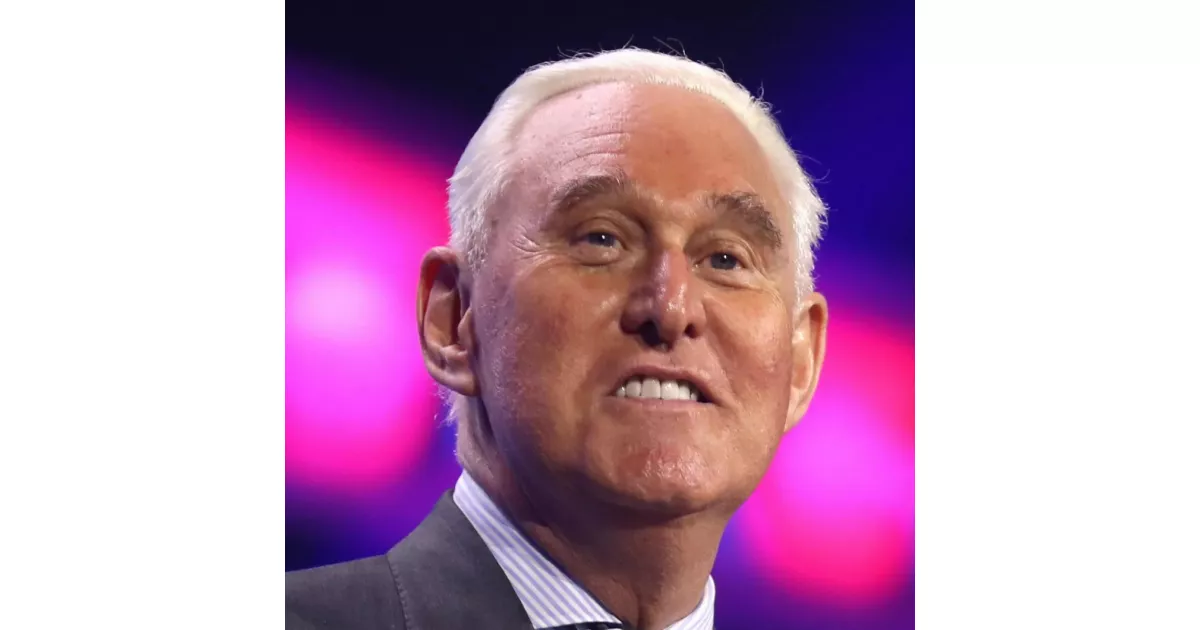Roger Stone is an American political strategist known for his controversial tactics and involvement in Republican politics. He gained significant attention for his role as a consultant for Donald Trump's 2016 presidential campaign and his alleged connections to Russian interference in the election. Stone's activities were investigated as part of the Mueller investigation, leading to his conviction on charges related to witness tampering and lying to investigators. He was later pardoned by Trump.
August 27, 1952: Birth of Roger Stone
On August 27, 1952, Roger Joseph Stone Jr., later known as Roger Stone, was born. He would become a prominent figure in American conservative politics.
1960: Stone's First Political Trick
As an elementary school student, Roger Stone claimed to have engaged in his first political stunt during the 1960 presidential election. He alleged to have spread misinformation in support of John F. Kennedy's campaign.
1964: Stone's Early Interest in Conservatism
Roger Stone's inclination towards conservatism began in his childhood after reading Barry Goldwater's book, "The Conscience of a Conservative." He even volunteered for Goldwater's 1964 presidential campaign.
1967: Introduction to Richard Nixon
In 1967, Roger Stone was introduced to former Vice President Richard Nixon by John Davis Lodge, marking the beginning of Stone's involvement in national politics.
1972: Stone's Post-Nixon Career
Following Nixon's victory in the 1972 presidential election, Roger Stone briefly served in the administration's Office of Economic Opportunity. After Nixon's resignation, Stone transitioned to work for Bob Dole but was subsequently dismissed when columnist Jack Anderson publicly labeled him a "dirty trickster" connected to the Nixon era.
1972: Stone's Role in the 1972 Nixon Campaign
Roger Stone's involvement in Richard Nixon's 1972 presidential campaign marked a significant period in his early political career, during which he engaged in various activities, including controversial tactics like using fabricated information to undermine Nixon's opponents.
1972: Stone's Entry into Nixon's Campaign
While attending George Washington University in 1972, Roger Stone took a pivotal step in his political career by inviting Jeb Stuart Magruder, a figure associated with Richard Nixon's Committee to Re-elect the President, to address a Young Republicans Club gathering. This led to Stone securing a position with the committee, prompting him to leave college.
1974: Marriage to Anne Elizabeth Wesche
Roger Stone married Anne Elizabeth Wesche in 1974.
1975: Stone Co-founds NCPAC
In 1975, Roger Stone played a role in establishing the National Conservative Political Action Committee (NCPAC), a prominent New Right organization known for its pioneering use of independent expenditure political advertising.
1976: Stone Works on Reagan Campaign
Roger Stone joined Ronald Reagan's campaign during the 1976 Republican Party presidential primaries, marking his involvement in another significant political campaign.
1977: Stone Becomes Young Republicans President
At the age of 24, Roger Stone achieved a notable political milestone by securing the presidency of the Young Republicans. His campaign was managed by his close associate, Paul Manafort.
1979: Stone Meets Donald Trump
Roger Stone's first encounter with Donald Trump took place in 1979, facilitated by Trump's attorney and mentor, Roy Cohn. This meeting marked the beginning of their long and tumultuous association.
1980: Formation of Black, Manafort & Stone
Capitalizing on their success in the Reagan campaign, Stone, Paul Manafort, and Charlie Black established the political consulting and lobbying firm Black, Manafort & Stone (BMS) in 1980.
1980: Stone Seeks Funds from Fred Trump
During his involvement in the 1980 Reagan campaign, for which Donald Trump was on the finance committee, Roger Stone claimed that Trump directed him to approach his father, Fred Trump, for a campaign contribution. Stone recounted receiving $200,000 from Fred Trump for the campaign.
1980: Stone Co-founds Lobbying Firm
In 1980, Roger Stone partnered with Paul Manafort and Charles R. Black Jr. to establish a lobbying firm in Washington, D.C., marking a significant step in his career as a political operative.
1980: Fashion Sense and Nancy Reagan
Roger Stone's distinct fashion sense, including his habit of not wearing socks, caught the attention of Nancy Reagan during her husband's 1980 presidential campaign.
1980: Role in Reagan Campaign
Stone played a key role in Ronald Reagan's 1980 presidential campaign, coordinating the Northeast region. He was involved in a controversial incident where he allegedly facilitated a payment to influence the Liberal Party of New York's nomination, potentially impacting the election results.
1981: Stone as Chief Strategist for Kean Campaign
Roger Stone took on the role of chief strategist for Thomas Kean's gubernatorial campaign in New Jersey in 1981.
1984: BMS's Role in Reagan's Re-election
BMS played a significant role in Ronald Reagan's successful 1984 re-election campaign, solidifying its reputation as a powerful force in Washington politics.
1984: BMSK Firm Formation
With the addition of Peter G. Kelly, the lobbying firm co-founded by Roger Stone was renamed Black, Manafort, Stone, and Kelly (BMSK) in 1984.
1985: Lee Atwater Joins BMS
Republican strategist Lee Atwater, known for his aggressive campaign tactics, joined Black, Manafort & Stone in 1985, further bolstering the firm's influence.
1985: Stone's Continued Role in Kean's Reelection
Roger Stone continued his involvement as chief strategist for Thomas Kean's reelection campaign for Governor of New Jersey in 1985.
1987: Senior Advisor to Jack Kemp's Presidential Campaign
Stone took on the role of senior advisor to Jack Kemp's 1988 presidential campaign, which was managed by his business partner, Charlie Black.
1988: Willie Horton Ads Controversy
The Willie Horton advertisements, which exploited racial anxieties and were widely condemned as racially charged, became a major point of controversy in the 1988 election. Stone has denied any involvement in their creation or distribution.
1988: Partners' Involvement in Bush's Campaign
While Stone was working on Kemp's campaign, his partners at BMS, Lee Atwater and Paul Manafort, played key roles in George H.W. Bush's successful presidential campaign.
1989: Anne Stone Founds Republicans for Choice
Using the name Ann E.W. Stone, Roger Stone's wife founded the group Republicans for Choice in 1989.
1990: BMSK Becomes Leading Lobbying Firm
By 1990, BMSK, the lobbying firm Roger Stone co-founded, had risen to prominence, becoming a leading force in representing American companies and foreign organizations.
1990: Divorce from Anne Elizabeth Wesche
Roger Stone and Anne Elizabeth Wesche divorced in 1990.
April 1992: Time Magazine Implicates Stone in Willie Horton Ads
In April 1992, Time magazine alleged that Stone was involved in the controversial Willie Horton advertisements used in George H. W. Bush's 1988 presidential campaign against Michael Dukakis.
1995: President of Arlen Specter's Presidential Campaign
Stone served as the campaign president for Republican Senator Arlen Specter's bid for the 1996 Republican presidential nomination.
1996: Specter Withdraws from Presidential Race
Specter's presidential campaign struggled to gain traction, and he withdrew early in the race with minimal support.
1996: Resignation from Bob Dole's Campaign
Stone resigned from his position as a consultant to Senator Bob Dole's 1996 presidential campaign after a tabloid newspaper published allegations that he had placed ads seeking sexual partners for himself and his wife. Stone initially denied the accusations but later admitted to their veracity.
1998: Stone Encourages Trump to Run for President
In early 1998, while acting as Donald Trump's casino business lobbyist in Washington, Roger Stone first proposed the idea of Trump pursuing a presidential bid.
1999: Health and Appearance Regimen
In 1999, Roger Stone attributed his youthful appearance to a regimen of Chinese herbs, breathing therapies, tai chi, and acupuncture.
2000: Campaign Manager for Donald Trump's Reform Party Bid
Stone served as the campaign manager for Donald Trump's short-lived campaign for the Reform Party's presidential nomination in 2000. It has been alleged that Stone orchestrated Trump's candidacy to undermine the Reform Party and benefit George W. Bush's campaign.
2002: Association with Thomas Golisano's Campaign
Stone was involved with businessman Thomas Golisano's campaign for governor of New York in 2002.
2004: Accusation of Forging Killian Memos
During the 2004 presidential election, Stone was accused by then-DNC Chairman Terry McAuliffe of forging the Killian memos, which purported to show that President George W. Bush had shirked his duties while serving in the Texas Air National Guard. Stone vehemently denied these allegations.
2004: Khizr Khan's Son Receives Posthumous Medals
In 2004, Khizr Khan's son was posthumously awarded the Bronze Star Medal and Purple Heart for his service in Operation Iraqi Freedom. Later, during the 2016 campaign, Roger Stone made headlines by defending Trump's criticism of Khan, accusing Khan of sympathizing with the enemy. [Tags: controversies, challenges, relationships]
2004: Advisor to Al Sharpton's Presidential Campaign
Stone served as an advisor to Al Sharpton during his campaign for the Democratic presidential nomination in 2004. This move raised eyebrows due to Stone's Republican affiliations, and some speculated that he was attempting to sabotage the Democratic Party's chances of winning the election.
August 6, 2007: Threatening Phone Call to Bernard Spitzer
On August 6, 2007, a threatening message was left on the answering machine of Bernard Spitzer, the father of then-New York gubernatorial candidate Eliot Spitzer. The call was traced back to Stone's wife's phone, leading to accusations that Stone had made the call. Stone denied involvement, but the incident forced him to resign from his position as an advisor to New York State Senate Majority Leader Joseph Bruno.
August 22, 2007: Confrontation on Hardball
On August 22, 2007, Stone appeared on the news program Hardball with Chris Matthews and was accused of making the threatening call to Bernard Spitzer. Stone maintained his innocence.
2007: Profile in The Weekly Standard
In 2007, Matt Labash profiled Roger Stone for The Weekly Standard, describing him as a "lord of mischief" and the "boastful black prince of Republican sleaze."
2007: Stone's Political Identity
In 2007, Roger Stone identified himself as a staunch conservative with libertarian leanings.
January 2008: Formation of Citizens United Not Timid
In January 2008, Stone established Citizens United Not Timid, an anti-Hillary Clinton political group with a deliberately provocative acronym.
2008: Conflict with Donald Trump
In 2008, Donald Trump called Roger Stone a 'stone-cold loser' and accused him of seeking too much publicity. Despite this, Trump later praised Stone in a December 2015 appearance, orchestrated by Stone, on Alex Jones' radio show. [Tags: relationships, controversies, challenges]
2008: Trump Calls Stone a Stone-Cold Loser
In 2008, Donald Trump called Roger Stone a 'stone-cold loser' and accused him of seeking too much publicity. This statement highlighted the tumultuous relationship between the two. [Tags: relationships, controversies]
2008: Admission to Placing Sex Ads
In a 2008 interview, Stone admitted that he had indeed placed the ads seeking sexual partners, contradicting his earlier denials.
2008: Appearance in "Boogie Man: The Lee Atwater Story"
Stone was featured in the 2008 documentary "Boogie Man: The Lee Atwater Story," which explored the life and career of the controversial Republican strategist.
February 2010: Roger Stone Becomes Campaign Manager for Kristin Davis
In February 2010, Roger Stone took on the role of campaign manager for Kristin Davis in her bid for the Libertarian Party nomination for governor of New York in the 2010 election. Stone aimed to garner a significant number of votes for Davis, despite also providing support to Republican candidate Carl Paladino. This dual-role led to accusations of a conflict of interest, but Stone maintained that the campaigns had different goals. [Tags: career-milestones, controversies]
2010: Contributions to The Daily Caller and Stone on Style
Since 2010, Roger Stone has contributed to the conservative website The Daily Caller and written for his fashion blog, Stone on Style.
2010: Appearance in "Client 9: The Rise and Fall of Eliot Spitzer"
Stone also appeared in the 2010 documentary "Client 9: The Rise and Fall of Eliot Spitzer," which examined the prostitution scandal that led to Spitzer's resignation as governor of New York.
2011: Roger Stone Advises Steve Berke's Mayoral Campaign
In 2011, Roger Stone volunteered as an unpaid adviser to comedian Steve Berke in his 2012 campaign for Mayor of Miami Beach, Florida. Berke, a Libertarian, eventually lost the race to incumbent Mayor Matti Herrera Bower. [Tags: career-milestones, challenges]
February 2012: Roger Stone Joins the Libertarian Party
In February 2012, Roger Stone changed his party affiliation from the Republican Party to the Libertarian Party. He predicted a 'Libertarian moment' in 2016 and the end of the Republican Party. [Tags: career-milestones, life-events]
June 2012: Roger Stone Supports Gary Johnson
In June 2012, Roger Stone announced he was running a super PAC to support Gary Johnson, former New Mexico governor and Libertarian presidential candidate. Stone believed Johnson had a role to play in the election, though he did not expect him to win. [Tags: career-milestones, contributions]
2012: Steve Berke's Mayoral Campaign Outcome
In 2012, Steve Berke lost the Miami Beach mayoral race to incumbent Mayor Matti Herrera Bower, despite being advised by Roger Stone. [Tags: challenges]
May 2013: Roger Stone Decides Against Gubernatorial Run
In May 2013, Roger Stone announced he would not run for governor of Florida as a Libertarian candidate. Instead, he chose to focus on campaigning for the 2014 Florida Amendment 2 referendum to legalize medical cannabis. [Tags: career-milestones, life-events]
2014: Support for Medical Cannabis Referendum
Roger Stone decided in 2013 to support the 2014 Florida Amendment 2 referendum to legalize medical cannabis, rather than running for governor of Florida. [Tags: contributions, life-events]
August 8, 2015: Stone Leaves Trump Campaign
Roger Stone officially departed from his role in Donald Trump's presidential campaign on August 8, 2015.
December 2015: Trump Praises Stone on Alex Jones' Show
In December 2015, Donald Trump praised Roger Stone during an appearance on Alex Jones' radio show, despite previously calling him a 'stone-cold loser' in 2008. Trump described Stone as 'loyal' and 'wonderful.' [Tags: relationships, career-milestones]
February 2016: CNN Bans Roger Stone
In February 2016, CNN banned Roger Stone from appearing on its network after he made a series of offensive Twitter posts. Stone specifically targeted CNN commentators Ana Navarro and Roland Martin with derogatory remarks. [Tags: controversies, challenges]
March 2016: National Enquirer Article on Ted Cruz
In March 2016, the National Enquirer published an article alleging that Ted Cruz had extramarital affairs, quoting Roger Stone. Cruz denied the allegations and accused Stone and the Trump campaign of planting the story. [Tags: controversies, challenges]
April 2016: Rick Gates Testifies About Stone's Knowledge of WikiLeaks Plans
During Stone's trial, former Trump campaign deputy chairman Rick Gates testified that Stone had informed campaign associates in April 2016 about WikiLeaks' intentions to release documents. This revelation suggested that Stone had prior knowledge of the leaks, contradicting his previous statements.
April 2016: Formation of Stop the Steal
In April 2016, Roger Stone formed a pro-Trump activist group called Stop the Steal. He threatened 'Days of Rage' if Republican leaders tried to deny Trump the nomination at the Republican National Convention. Stone also threatened to disclose the hotel room numbers of delegates opposing Trump, which was deemed 'over the line' by the Republican National Committee Chairman. [Tags: career-milestones, controversies]
April 2016: Cruz Criticizes Stone
In April 2016, Ted Cruz criticized Roger Stone on The Sean Hannity Show, accusing him of orchestrating a smear campaign against him and being a 'dirty trickster.' Stone responded by comparing Cruz to Richard Nixon and calling him a liar. [Tags: controversies, challenges]
June 2016: Stone Regrets Offensive Tweets
In June 2016, Roger Stone expressed regret for some of his offensive tweets during an appearance on the show On Point. He admitted that calling Roland Martin a 'fat negro' was a mistake made under the influence of alcohol. [Tags: controversies, challenges, life-lessons]
July 2016: Stone Arrested on Seven Criminal Charges
In a pre-dawn raid on January 25, 2019, 29 FBI agents arrested Roger Stone at his Florida home. He was charged with seven criminal counts related to the Mueller investigation, including obstruction of justice, false statements, and witness tampering. Prosecutors alleged that Stone acted as a liaison between the Trump campaign and WikiLeaks after the initial release of hacked DNC emails in July 2016.
August 21, 2016: Tweets About Podesta and WikiLeaks
During the 2016 campaign, Roger Stone tweeted cryptic messages before the release of John Podesta's hacked emails. One tweet said, "It will soon the Podesta's time in the barrel." Five days before the leak, he tweeted, "Wednesday Hillary Clinton is done. #Wikileaks." Stone denied any connection to the hack, claiming his tweets referred to the Podesta Group's alleged Russian ties.
October 2016: Stone's Alleged Contact with Assange Before Public Knowledge of Hacks
An anonymous source claimed that Stone's alleged conversation with Assange occurred before the public knew about the hacking of Podesta and DNC emails, which WikiLeaks published in July and October 2016. Stone denied knowing about the leaked emails beforehand.
October 2016: Stone Allegedly Directs Associate to Influence WikiLeaks Release
Immediately following the release of the "Access Hollywood" tape in October 2016, Stone allegedly instructed his associate, Jerome Corsi, to tell Julian Assange to release the John Podesta emails immediately. WikiLeaks did publish the emails shortly after, but they had been announced three days prior.
2016: Alleged Contact with Israeli Individuals During Campaign
During the 2016 US presidential campaign, Roger Stone was in contact with individuals in Israel, one of whom claimed Trump would lose unless they intervened, promising "critical intell." This interaction was found in FBI documents.
2016: Stone Identified as Alleged Contact of Russian Hackers
Following the dismissal of the Protect Democracy lawsuit, government officials identified Stone as the anonymous individual mentioned in the indictment of twelve Russian intelligence officers. The indictment alleged that Stone was in communication with the hackers known as Guccifer 2.0 and had regular contact with senior Trump campaign officials.
2016: Stone Considers Senate Run
In 2016, Roger Stone considered running for the United States Senate in Florida to challenge white nationalist Augustus Invictus for the Libertarian nomination. He ultimately decided not to enter the race. [Tags: career-milestones, challenges]
2016: Stone's Alleged Contact with Assange During Campaign
Roger Stone faced allegations in 2018 that he had communicated with Julian Assange during the 2016 presidential race, a claim that Assange denied to The Washington Post.
2016: Prediction of Libertarian Moment
Roger Stone predicted in 2012 that a 'Libertarian moment' would occur in 2016, leading to significant changes in the political landscape. [Tags: innovations, contributions]
2016: Roger Stone's Involvement in the 2016 Election
Roger Stone served as a political consultant for Donald Trump's 2016 presidential campaign, a period during which he became embroiled in the controversy surrounding Russian interference in the election.
2016: Roger Stone's Involvement in Trump Campaign
Roger Stone served as an adviser to Donald Trump's 2016 presidential campaign. He left the campaign amid controversy on August 8, 2015, with conflicting reports on whether he resigned or was fired. Despite this, Stone continued to support Trump and even wrote an op-ed on how Trump could still win. [Tags: career-milestones, controversies, relationships]
February 2017: FBI Investigation into Russian Contacts
In February 2017, The New York Times reported the FBI was investigating Roger Stone's possible contacts with Russian operatives as part of their investigation into the Trump campaign.
March 2017: Senate Committee Requests Stone to Preserve Documents, Calls for Testimony
In March 2017, the Senate Intelligence Committee asked Stone to preserve documents related to any Russian contacts. Senator Mark Warner urged Stone to testify, highlighting his alleged connections with WikiLeaks, knowledge of John Podesta being targeted, and contact with a Russian agent.
March 31, 2017: Stone Denies Wrongdoing, Agrees to Testify
On March 31, 2017, amidst allegations of shady dealings with Russia, Roger Stone denied any wrongdoing during an interview on "Real Time with Bill Maher." He expressed willingness to testify before the Senate Intelligence Committee.
May 2017: Stone Criticizes Trump's Visit to Saudi Arabia
In May 2017, Roger Stone criticized Trump's visit to Saudi Arabia, calling Saudi Arabia an 'enemy' and suggesting that the Saudi government financed the September 11 attacks. He tweeted that Trump should demand they pay for the attack on America. [Tags: controversies, challenges, relationships]
June 2017: Stone and Assange Exchange Messages
Court documents released in 2020 revealed that Roger Stone and Julian Assange, the founder of WikiLeaks, exchanged messages in June 2017.
September 26, 2017: Denial of Prior Knowledge of Podesta Email Hack
In his opening statement to the United States House Permanent Select Committee on Intelligence on September 26, 2017, Roger Stone denied any advance knowledge of the Podesta email hack. He claimed his earlier tweet referred to reports of the Podesta Group's ties to Russia.
October 28, 2017: Stone's Twitter Account Suspended for "Targeted Abuse"
On October 28, 2017, Twitter suspended Roger Stone's account due to what it deemed as "targeted abuse" directed at CNN personnel. The suspension followed a series of derogatory, threatening, and offensive tweets.
December 1, 2017: Stone Sends Threatening Text to Randy Credico
On December 1, 2017, Stone sent a text message to Randy Credico, a potential witness, threatening him if he testified against him.
December 2017: Defamation Lawsuit Verdict
In December 2017, a New York court jury ruled in favor of Roger Stone in a defamation lawsuit filed by Warren Redlich. Redlich had sued Stone over flyers that labeled him a 'sexual predator' and 'sick, twisted pervert,' but the jury found that Redlich failed to prove Stone's involvement. [Tags: controversies, challenges, triumphs]
December 2017: Stone Calls Michael Cohen a "Rat" for Cooperating with Prosecutors
In a December 2017 interview, Stone criticized Michael Cohen for pleading guilty and cooperating with prosecutors, labeling him a "rat" for turning against President Trump, something Stone vowed he would never do.
2017: Stone Recalls Early Relationship with Trump
In 2017, Roger Stone reflected on his early interactions with Donald Trump, stating that they "hit it off immediately" when they first met.
2017: Netflix Documentary on Roger Stone
In 2017, the Netflix documentary 'Get Me Roger Stone' was released, focusing on Stone's life and career. [Tags: legacy, career-milestones]
March 13, 2018: Stone's Claims of Contact with Assange Surface
On March 13, 2018, sources close to Stone revealed to The Washington Post that he had boasted about contacting Julian Assange. These claims included a phone conversation discussing leaked Clinton campaign emails. Stone later denied these claims.
April 9, 2018: Stone Sends Threatening Email to Randy Credico
On April 9, 2018, Stone escalated his threats towards Randy Credico by sending a threatening email that included comments about harming Credico's security dog.
May 2018: Stone's Social Media Consultant Subpoenaed
In May 2018, Jason Sullivan, Stone's social media consultant, received grand jury subpoenas from the Special Counsel's investigation.
May 21, 2018: Stone Continues to Threaten Randy Credico
On May 21, 2018, Stone sent another email to Randy Credico, further threatening him and challenging his credibility.
July 3, 2018: Lawsuit Against Stone and Trump Campaign Dismissed
On July 3, 2018, a judge dismissed a lawsuit filed by Protect Democracy that accused the Trump campaign and Stone of conspiring with Russia and WikiLeaks to publish hacked DNC emails during the 2016 election, citing jurisdictional grounds.
December 2018: Defamation Settlement
In December 2018, Roger Stone agreed to retract a false claim made during the campaign about Guo Wengui donating to Hillary Clinton as part of a defamation settlement.
2018: Association with the Proud Boys
In 2018, Roger Stone sought out the Proud Boys, a radical right group known for street violence, to provide security at the annual Republican Dorchester Conference in Salem, Oregon. He was seen drinking with several members. When asked about being a member, Stone called the reporter a member of the Communist Party. Stone has a close relationship with former Proud Boys leader, Enrique Tarrio, who has profited from their connection.
2018: Allegations of Stone's Contact with Assange Surface
During 2018, two individuals associated with Roger Stone alleged that he had claimed to have been in contact with Julian Assange during the 2016 presidential campaign.
January 2019: Proud Boys Support at Arraignment
After Roger Stone's arraignment in Miami in January 2019, members of the Proud Boys, a radical right group known for street violence, showed their support by holding signs that read, "Roger Stone is innocent."
January 2019: Allegations of Communication with WikiLeaks Contacts
An indictment in January 2019 alleged that Roger Stone communicated with additional contacts aware of WikiLeaks' plans.
January 25, 2019: Stone's Arrest and Charges
Roger Stone was apprehended at his residence in Fort Lauderdale, Florida, on January 25, 2019, in connection with the Special Counsel investigation led by Robert Mueller. He faced charges of witness tampering, obstruction of justice, and five counts of making false statements.
February 18, 2019: Proud Boys Support at Trump Rally
During a televised Trump rally in Miami, Florida, on February 18, 2019, Enrique Tarrio, former leader of the Proud Boys, was seated directly behind President Trump wearing a "Roger Stone did nothing wrong" t-shirt.
November 6, 2019: Stone's Trial Begins
Roger Stone's trial began on November 6, 2019, at the US District Court for the District of Columbia. The charges stemmed from the Mueller investigation, and a key point of contention was Stone's alleged communication with WikiLeaks during the 2016 election.
November 15, 2019: Stone Found Guilty on All Counts
On November 15, 2019, after a week-long trial, the jury found Roger Stone guilty on all seven counts against him: obstruction of justice, making false statements, and witness tampering. One juror emphasized that the verdict was based on evidence, not political bias.
November 2019: Stone Found Guilty on Seven Felony Counts
In November 2019, a jury found Roger Stone guilty on all seven felony charges brought against him, leading to a sentence of 40 months in prison.
2019: Nixon Foundation Distances Itself from Stone
Following Stone's indictment in 2019, the Nixon Foundation publicly distanced itself from Stone, downplaying his ties to the former President.
2019: Confirmation of William Barr as Attorney General
In 2019, William Barr was confirmed as Attorney General. This event is relevant to the Roger Stone case as Barr's subsequent actions in the case, including agreeing to testify before Congress, were significant.
January 2020: Replacement of Jessie K. Liu
In January 2020, Jessie K. Liu was replaced by Timothy Shea, a close advisor of Attorney General Barr. This event is significant because it altered the prosecutorial team involved in the Roger Stone case.
February 10, 2020: Prosecutors Request Prison Sentence for Roger Stone
On February 10, 2020, prosecutors requested a sentence of seven to nine years for Roger Stone's crimes. Trump called the recommendation "horrible" and "unfair" on Twitter. Subsequently, the Justice Department recommended a lighter sentence, leading to the withdrawal of all four prosecutors from the case.
February 11, 2020: Withdrawal of Jessie K. Liu's Nomination
On February 11, 2020, Trump withdrew Jessie K. Liu's nomination for a Treasury Department position. Liu had overseen cases related to the Mueller investigation, including Stone's prosecution, as the U.S. Attorney for the District of Columbia. The withdrawal was reportedly due to her perceived lack of involvement in the Stone and McCabe cases.
February 20, 2020: Sentencing of Roger Stone
On February 20, 2020, Judge Amy Berman Jackson sentenced Roger Stone to 40 months in prison and a $20,000 fine. Judge Jackson defended the integrity of the investigation and prosecution, stating that Stone was not being sentenced for his connections but for his crimes.
February 23, 2020: Judge Jackson Rejects Recusal Request
Judge Amy Berman Jackson rejected a request by Stone's lawyers to be removed from the case on February 23, 2020. This decision allowed her to continue presiding over the post-sentencing proceedings.
April 2020: Search Warrants Reveal Stone's Political Influence Scheme
In April 2020, nearly three dozen search warrants were unsealed, exposing Roger Stone's orchestration of hundreds of fake Facebook accounts and bloggers to manipulate social media for political gain.
July 10, 2020: Trump Commutes Stone's Sentence
On July 10, 2020, shortly before Roger Stone was due to begin his prison term, President Donald Trump intervened by commuting his sentence.
July 15, 2020: Challenge to Stone's Commutation
On July 15, 2020, legal counsel representing two constitutional law professors requested permission to file a legal brief questioning the constitutionality of Trump's commutation of Stone's sentence. Judge Jackson later denied the request, citing a lack of jurisdiction.
July 28, 2020: Congressional Hearing on Roger Stone Sentencing Controversy
On July 28, 2020, Attorney General William Barr testified before the House Judiciary Committee regarding the controversy surrounding the Justice Department's intervention in Roger Stone's sentencing. The hearing was prompted by allegations of political interference and concerns over the rule of law.
August 2020: Senate Report Finds Stone Had Access to WikiLeaks
The Senate Intelligence Committee's final report, released in August 2020, revealed that Roger Stone had access to WikiLeaks, and that Donald Trump had discussed this with Stone and other associates multiple times.
August 17, 2020: Stone Drops Appeal of Convictions
Roger Stone made the decision to withdraw his appeal against his convictions on August 17, 2020.
September 10, 2020: Call for Martial Law and Arrests
On September 10, 2020, Roger Stone suggested to Alex Jones on InfoWars that if Trump appeared to be losing the 2020 election, he should consider declaring martial law, seizing ballots, and arresting figures like Tim Cook, Mark Zuckerberg, and the Clintons for "illegal activity." He also called for the shutdown of The Daily Beast, labeling their actions as "seditious."
November 2, 2020: "Right to Violence" Statement
On November 2, 2020, Roger Stone was recorded telling Trump supporters that they had "the right to violence."
November 5, 2020: Post-Election Statements
On November 5, 2020, two days after the presidential election, Roger Stone made controversial statements suggesting that legislative bodies with evidence of election fraud could choose their own electors.
December 23, 2020: Trump Pardons Stone
President Donald Trump granted a pardon to Roger Stone on December 23, 2020, absolving him of his convictions.
2020: Allegations of Voter Fraud and Support for Trump
Following the 2020 presidential election, Roger Stone made unsubstantiated claims about North Korean boats delivering ballots in Maine. He also stated in an interview on Tucker Carlson Tonight that Trump was "the greatest president since Abraham Lincoln."
2020: Meeting with Oath Keepers and Pardon Pressure
In 2020, Roger Stone was reported to have met with the Oath Keepers on the day of the Capitol attack and subsequently pressured the Trump administration for pardons for members of Congress who supported overturning the election.
2020: Rally Appearances and Calls to Action
Throughout 2020, Roger Stone made appearances at various rallies, including the "Stop the Steal" rally on January 5, urging supporters to fight against the election results.
January 6, 2021: Capitol Riot
On January 6, 2021, a riot occurred at the United States Capitol Building, which Roger Stone was accused of inciting.
February 2021: FBI Investigation into Capitol Riot Involvement
The Washington Post reported in February 2021 that the FBI was investigating Roger Stone's possible role in influencing the Proud Boys and Oath Keepers' involvement in the January 6th Capitol riot.
April 2021: Justice Department Lawsuit
In April 2021, the Justice Department filed a civil suit against Roger Stone and his wife for approximately $2 million in unpaid federal taxes, alleging they used a commercial entity to shield income.
November 22, 2021: Subpoena by January 6th Committee
On November 22, 2021, the House Select Committee investigating the January 6th attack subpoenaed Roger Stone. He appeared but invoked the Fifth Amendment, refusing to answer questions.
December 23, 2021: Lawsuit Dismissal Request
Roger Stone urged a judge to dismiss a lawsuit against him by Capitol Police officers on December 23, 2021, alleging he incited the January 6, 2021 riot. This followed the surfacing of a video showing him telling Trump supporters on November 2, 2020, that they had "the right to violence."
April 25, 2022: Joins Ontario Party Campaign
On April 25, 2022, the Ontario Party announced Roger Stone joined their campaign team as a Senior Strategic Advisor for the 2022 Ontario general election. Stone had previously appeared alongside party leader Derek Sloan and criticized Ontario Premier Doug Ford's approach to conservatism.
2022: Tax Settlement
In 2022, Roger Stone agreed to pay over $2 million in taxes as part of a settlement with the Justice Department.
August 2023: Video Release and Election Overturning Efforts
In August 2023, a video surfaced showing Roger Stone pushing to overturn state election results before the 2020 election was called, contradicting claims that Trump and his allies believed they had won.
2023: Inflation Adjustment for Fine
As of 2023, the $20,000 fine imposed on Roger Stone is equivalent to approximately $23,199 due to inflation. This detail provides context to the financial penalty imposed.
January 2024: Assassination Discussion Controversy
In January 2024, a tape surfaced in which Roger Stone allegedly discussed assassinating Democratic politicians. Stone denied the recording's authenticity, but the US Capitol Police investigated the matter.
2024: Offensive Tweet Controversy
During the 2024 presidential campaign, Roger Stone replied to a tweet by former Republican congressional candidate Mike Crispi with "SeeYouNextTuesday", seemingly referencing Casey DeSantis with an offensive slang term.
2024: Support for Trump and Criticism of DeSantis
Roger Stone expressed his support for Trump's potential run in the 2024 presidential election and criticized Ron DeSantis for "disloyalty" amidst rumors of his own presidential campaign.
Mentioned in this timeline

Donald John Trump is an American politician media personality and...
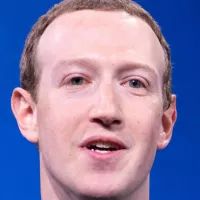
Mark Zuckerberg is an American businessman and programmer best known...
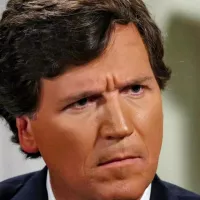
Tucker Carlson is an American right-wing political activist and commentator...
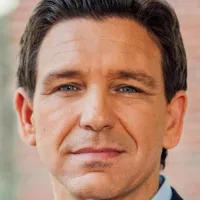
Ron DeSantis is an American politician who has served as...
Ukraine is a country in Eastern Europe the second-largest on...

Hillary Diane Rodham Clinton is a prominent American politician lawyer...
Trending
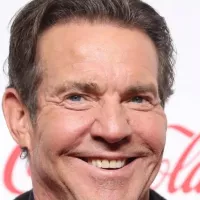
30 minutes ago Dennis Quaid expresses admiration for Donald Trump, discusses political climate in United States.
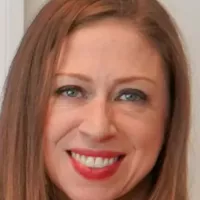
30 minutes ago Hillary Clinton Addresses Ghislaine Maxwell's Presence at Chelsea's Wedding Amidst Controversy.

31 minutes ago Luciano Darderi Achieves Santiago QF; Predictions for Navone vs Kopriva Match

2 hours ago Toriano Pride Jr. shines at NFL Combine, impressing Vikings potential draft pick.
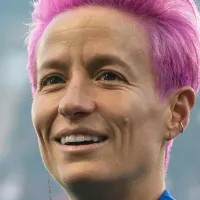
2 hours ago Rapinoe Reacts to Trump Invite Criticism Amidst Hockey Team's Political Debate.

2 hours ago Townsend vs. Masarova: WTA Austin Quarterfinal Prediction and Masarova's Quarterfinal Entry
Popular

Jesse Jackson is an American civil rights activist politician and...

Susan Rice is an American diplomat and public official prominent...

XXXTentacion born Jahseh Dwayne Ricardo Onfroy was a controversial yet...

Michael Joseph Jackson the King of Pop was a highly...

Barack Obama the th U S President - was the...

Hillary Diane Rodham Clinton is a prominent American politician lawyer...
